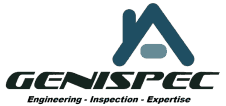What you should take away from this comparison
- Inspecting a commercial building is not the same as inspecting a residential one. Commercial properties involve more complex systems and higher risks.
-
Key differences include:
- Flat roofs, reinforced foundations, heavy equipment
- Advanced mechanical systems (HVAC, three-phase electricity, industrial plumbing)
- Stricter safety codes (emergency exits, sprinklers, building regulations)
- The building’s use (retail, office, warehouse) has a major impact on what needs to be inspected
- Residential inspectors don’t always have the right expertise for commercial properties
- An inspection conducted by an engineer is often essential—to avoid mistakes, meet regulations and reassure lenders
- At Genispec, our inspections are tailored specifically to the realities of commercial and industrial buildings in Quebec
Same concept, different requirements
On the surface, an inspection is just that: a thorough check of a building’s condition, systems and visible components.
But in reality, inspecting a commercial or industrial property requires a very different approach, along with specialized tools and know-how.
“As a whole, the process is similar—but the systems are more complex, and so are the risks,” says the Project Manager at Genispec.
1. Structure and building envelope
Roofs
- Residential: sloped shingles, visible wear and tear, attic ventilation
- Commercial: flat roof with layered membrane, water pooling areas, potential leaks that can’t be spotted without proper testing
Foundations
Both building types present challenges, but commercial properties may require:
- Reinforced slabs for heavy machinery
- Deeper foundations
- Loading docks or drive-in access
2. Mechanical and technical systems
This is where the biggest gap lies between commercial and residential inspections.
Electrical
- Residential: basic circuits, standard panels
- Commercial: three-phase systems, higher loads, specific rules for ventilation and equipment
Plumbing
- Residential: visible pipes, standard water use
- Commercial: variable pressure, industrial drainage, more complex equipment
Ventilation & air conditioning
- Commercial buildings often rely on central ventilation, rooftop units (RTUs), or multi-zone systems.
“These systems require a more in-depth look. Depending on what’s installed, we sometimes need to bring in specialized contractors,” says the expert.
3. Safety standards
Commercial properties must meet stricter safety codes:
- Certified fire alarm systems
- Emergency exits, compliant pathways, backup lighting
- Automatic fire suppression systems (sprinklers) in some cases
- Full compliance with the Quebec Construction Code for public spaces
4. Building usage matters
The building’s function also influences the inspection:
- Retail: check storefronts, floors, accessibility (e.g. wheelchair access), electrical setup
- Industrial: assess foundations, concrete slabs, storage areas, load-bearing capacity
- Offices: air quality, HVAC system performance, space layout
Each usage type brings its own technical requirements and inspection checklist.
5. What general inspectors may miss
Residential building inspectors don’t always have the authority or training to assess:
- The structural integrity of an industrial concrete slab
- The durability of a centralized mechanical system
- Whether a commercial property meets the right safety codes
“As an engineering firm, the scope of our reports is much broader—especially when lenders or insurance companies are involved,” says the expert.
6. What it means for the client
For buyers:
A detailed inspection report can uncover costly issues before you finalize the purchase or give you solid grounds to negotiate the price.
For property owners or managers:
It helps prevent major system failures and can protect you from insurance refusals or code violations.
Bottom line: two types of buildings, two different methods
You can’t approach a triplex the same way you would a 25,000 sq. ft. warehouse. Each property comes with its own logic, systems and challenges.
At Genispec, we tailor our inspections to your specific building, with engineers who understand what’s involved in commercial and industrial properties in Quebec.
Planning to buy, sell or evaluate a commercial building? Reach out to Genispec for a custom inspection that fits your project.
Genispec
Consulting engineering firm based in Québec
Genispec is a consulting engineering firm made up of building engineers who are members of the OIQ. We offer specialized services in façade and underground parking inspections in accordance with Law 122, as well as reserve fund studies and maintenance logs as required by Law 16. We also conduct inspections of commercial, multi-residential, industrial buildings, and condominiums. In addition, we provide building condition certificates and pre-delivery inspections.
All our reports are validated by a qualified engineer. Every article published on our website is reviewed and approved by a qualified member of our team to ensure the technical accuracy of the information.
